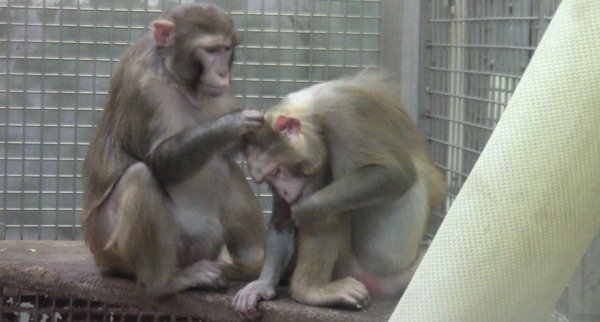
Primates: Husbandry
Like all animal keeping at the Max Planck Society, the relevant authorities regularly monitor how the monkeys are looked after. An on-site team, comprising experienced vets, biologists and animal attendants, ensure that the statutory requirements for the keeping of laboratory animals are observed.
The optimum care of the animals is not only personally very important to the attendants but is also vital to the research. This is because only animals that feel well cooperate voluntarily with the behavioural research and provide the researchers with reliable scientific data. Permanently stressed monkeys, on the other hand, can become aggressive or display stereotypical patterns of behaviour. This not only makes it difficult for the attendants to deal with the animals, it also has an effect on the quality of the scientific results. Only healthy and relaxed animals can therefore participate in long-term studies as they are frequently carried out at the Max Planck Institutes.
The animals are kept in mixed groups. They have access to climbing and play equipment as well as areas that they can retreat into in their compounds. This social enrichment is intended to ensure behaviour that is as appropriate as possible for their species. Specially designed behavioural studies also constantly provide scientists and vets with new research findings which they can use to improve the animals' keeping conditions. In addition, they share information on an ongoing basis with other facilities that also keep monkeys.
In the keeping of primates, protecting the animals from infection is the top priority. As humans and monkeys are relatively similar to one another, pathogens can be easily transmitted from one to the other. It is therefore a matter of protecting humans from the animals' pathogens and vice versa. The best way to ensure this protection is to follow strict hygiene rules, restrict access as required and provide training and further education for individuals who are dealing with and caring for the animals.